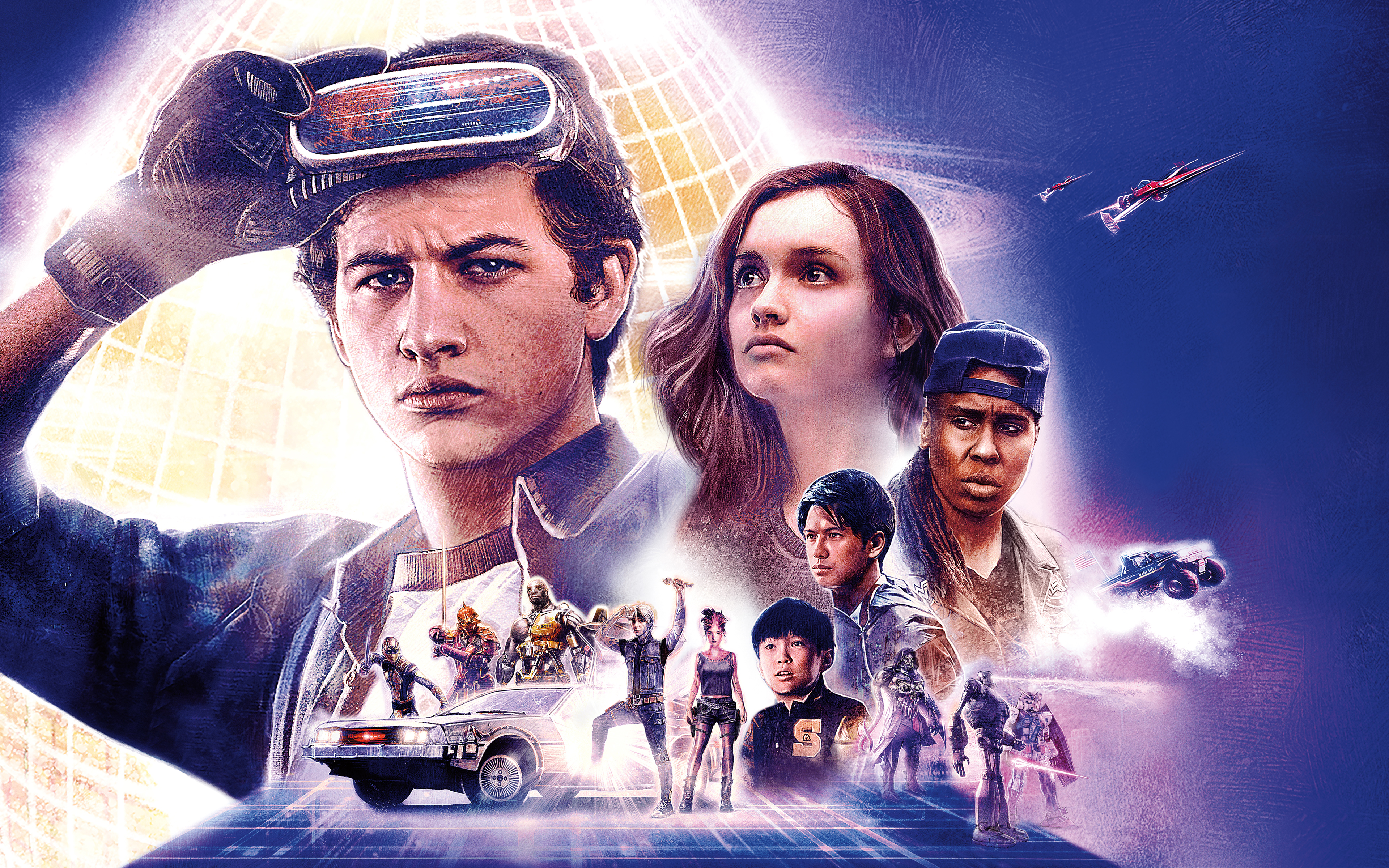Ready Player One
by Hope Madden
Ready Player One may be the most Spielbergian of all Spielberg movies. It’s Spielberg on Spielberg. Meta-Spielberg.
You get the idea.
It’s 2045 in Columbus, Ohio and the world is so miserable for so many that they spend all day, every day inside their video games. OASIS is a virtual world where you can play anything against anybody at any time.
The creator of OASIS and every devoted gamer’s hero, James Halliday (Mark Rylance), died several years ago and has built a challenge into the game. The winner will own OASIS (and its trillion in worth) outright.
And that’s it. A ragtag group of nerds (led by Tye Sheridan and Olivia Cooke) must learn to work together so they can defeat the megalomaniacal tech firm run by a guy who doesn’t even like gaming (Ben Mendelsohn).
What? Misfit kids teaming up to learn from a master nerd and beat the suits? Smells like Spielberg!
Ready Player One is a celebration of gamer culture in the same way that The Lego Movie indulged in the sheer joy of building with Legos. It is also an 80s pop culture nerd’s wet dream. You want to see a guy wearing Buckaroo Banzai’s while driving Marty McFly’s DeLorean romance a girl on Tron’s bike or run across a bridge made of the Iron Giant? Done.
Want to know what the Zemeckis Cube does? (Bill and Ted know.)
The entire assortment of John Hughesisms is set to righteous beats from Bruce to Blondie.
And that’s where the film could easily have become fluffy nonsense were it not for the genius move of taking an 80s fanboy icon (Spielberg) and allowing him to simply provide an undiluted version of every nostalgic gimmick he has ever hatched.
Every time he borrows from himself or leans on old tendencies—tendencies he’s been trying to shed since 1985’s The Color Purple—it feels like it’s meant to be.
It’s basically a Spielberg movie inside an ode to Spielberg movies.
Plus, oh my God I want a The Shining video game!
Unfortunately, that’s all it really is. The performances are hammy fun but certainly not revelatory. The story is thin enough that it doesn’t get in the way of all the cool FX and callbacks. You’ve seen it all before, you just haven’t seen it quite this unabashed, with frame after frame nearly bursting with the exuberance of some kid whose parents just demanded he put down that homework, crank up the tunes and start gaming already!









